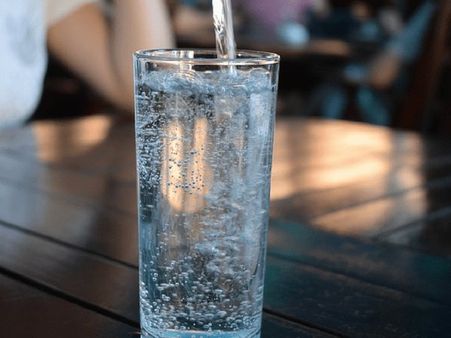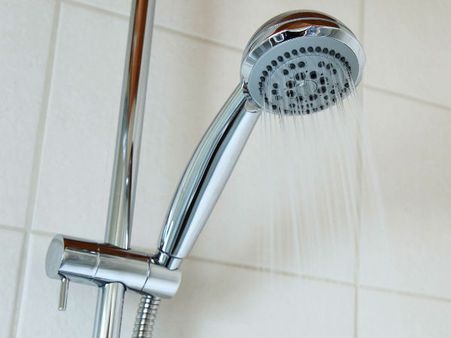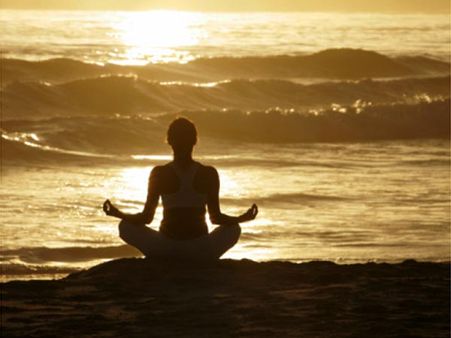Just In
- 8 hrs ago

- 8 hrs ago

- 9 hrs ago

- 10 hrs ago

Don't Miss
- Finance
 Highest Dividend In 2023 In History: Multibagger Refineries PSU To Mull Dividend On April 24
Highest Dividend In 2023 In History: Multibagger Refineries PSU To Mull Dividend On April 24 - News
 Dailyhunt ‘Trust Of Nation’ Survey: 64% Respondents Want Narendra Modi As PM Again
Dailyhunt ‘Trust Of Nation’ Survey: 64% Respondents Want Narendra Modi As PM Again - Movies
 EXCLUSIVE Interview! Alankrita Sahai On Journey From Beauty Pageant Winner To Films, Nepotism In Bollywood
EXCLUSIVE Interview! Alankrita Sahai On Journey From Beauty Pageant Winner To Films, Nepotism In Bollywood - Sports
 KKR vs RR, IPL 2024 Twitter Reaction: Sunil Narine hailed by Social Media after Stellar Century
KKR vs RR, IPL 2024 Twitter Reaction: Sunil Narine hailed by Social Media after Stellar Century - Education
 UPSC CDS 1 Exam on 21 April 2024
UPSC CDS 1 Exam on 21 April 2024 - Automobiles
 Jeep Compass Gets More Powerful 268.3bhp Turbo Petrol Engine – Check Out All The Details Here
Jeep Compass Gets More Powerful 268.3bhp Turbo Petrol Engine – Check Out All The Details Here - Technology
 Redmi Pad SE With 90Hz Display Launching on April 23 in India; Could Be Priced for Less Than Rs 20,000
Redmi Pad SE With 90Hz Display Launching on April 23 in India; Could Be Priced for Less Than Rs 20,000 - Travel
 From Coconut Breaking on Head to Men Dressing as Women: 12 Unique Indian Rituals Explored
From Coconut Breaking on Head to Men Dressing as Women: 12 Unique Indian Rituals Explored
COVID-19 Lockdown: 9 Ways To Manage Alcohol Withdrawal Symptoms
After the lockdown was declared across the country, doctors have seen a sudden surge in patients facing alcohol withdrawal symptoms. The reason being the closing of liquor shops.
In certain parts of the country, there has been a sudden increase in the number of cases suffering from alcohol withdrawal symptoms. Most people who are addicted to alcohol are experiencing mild, moderate and severe withdrawal symptoms such as sleeplessness, restlessness, epilepsy, seizure and so on.

Doctors have also warned that sometimes the alcohol withdrawal symptoms can be so severe that it could lead to suicidal symptoms in patients.
This article will talk about ways to manage alcohol withdrawal symptoms.

1. Eat healthy foods
Consume healthy foods such as fruits, vegetables, whole grains, poultry, fish, beans and low-fat dairy as they will provide your body with essential vitamins and minerals which will help your body repair. Eating high-fibrous foods will keep you fuller for longer and thus, reducing the symptoms of alcohol withdrawal. Also, whenever you crave for alcohol, eat fruits as they can curb the cravings due to their natural sugar content.


2. Hydrate your body
Dehydration can increase the symptoms of alcohol withdrawal, so drink plenty of water or fluids that contain electrolytes to help rehydrate and detox your body of the harmful toxins. Drink coconut water, fruit and vegetable juices to prevent dehydration and nausea.

3. Take a hot shower
If you feel a strong urge to consume alcohol during this critical time, take a hot shower. Taking a hot shower will aid in better sleep as well as lower down your restless feeling. In addition, hot shower to soothe body aches and help relax your body.
Note: Make sure that the water is not too hot to prevent burns on your skin.

4. Stay physically active
While you may not like exercising during withdrawal, practicing moderate exercises is one of the best ways to manage alcohol withdrawal. When you exercise, your body will release chemicals called endorphins that will interact with the receptors in the brain and trigger happiness and positivity. Try going for a walk or run in your neighbourhood.

5. Listen to music
Distraction can be a powerful tool to ease you from alcohol withdrawal symptoms. It is much better to focus on something like listening to your favourite music than to focus on the discomfort of your alcohol withdrawal symptoms.


6. Practice meditation
Meditation can help you stay relaxed and calm during your withdrawal period. It will clear your mind; help you focus on the important things in life and teach not to react to your alcohol cravings.

7. Write down your feelings
Take a pen and paper and write down your feelings-how you are going through these tough times and how you can overcome it by encouraging yourself to follow a healthy lifestyle.

8. Get help from family or friends
If loneliness is worsening your alcohol withdrawal symptoms and you are feeling weak and in despair, speak about it to your friends or family who will understand and guide you through this critical situation.

9. Seek medical assistance
Seek medical assistance if you are unable to cope with alcohol withdrawal symptoms. This will make you feel less depressed or anxious and also help you lead a healthy and meaningful life.
Common FAQs
What happens to your body when you stop drinking?
After you stop drinking, your craving increases and along with it, symptoms such as anxiety, headache, nausea and high blood pressure occurs. After 12 to 24 hours, more severe symptoms occur such as confusion and agitation.
What happens when you give up alcohol for a month?
Giving up alcohol will lower your risk of health problems such as liver cancer, fatty liver disease and heart disease.
What can I drink instead of alcohol?
Drink healthy drinks such as tea, fruit and herb-infused water, coffee, juice, sparkling water and fruit juices.
-
 healthCOVID Surge In India: Do You Need A COVID-19 Booster Shot?
healthCOVID Surge In India: Do You Need A COVID-19 Booster Shot? -
 disorders cureCommon COVID Symptoms In Fully Vaccinated Individuals: What You Should Know
disorders cureCommon COVID Symptoms In Fully Vaccinated Individuals: What You Should Know -
 wellnessMild COVID Linked To Life-Threatening Blood Clots, Increased Risk Of Cardiovascular Disease; Study
wellnessMild COVID Linked To Life-Threatening Blood Clots, Increased Risk Of Cardiovascular Disease; Study -
 wellnessCOVID-19 Variants In India: New COVID Variant May Pose Threat To Elderly People
wellnessCOVID-19 Variants In India: New COVID Variant May Pose Threat To Elderly People -
 basicsCovid-19 Linked To Early Onset Of Periods: What You Need To Know
basicsCovid-19 Linked To Early Onset Of Periods: What You Need To Know -
 wellnessCOVID XBB Variants Of Omicron In India: What You Should Know
wellnessCOVID XBB Variants Of Omicron In India: What You Should Know -
 disorders cureNew Omicron Subvariant BQ.1 Detected In Maharashtra: What You Should Know
disorders cureNew Omicron Subvariant BQ.1 Detected In Maharashtra: What You Should Know -
 disorders cureOmicron BF.7 In India, Risk Of Fresh Wave During Diwali: What You Should Know
disorders cureOmicron BF.7 In India, Risk Of Fresh Wave During Diwali: What You Should Know -
 wellnessCoronavirus Residues Might Be Causing Long COVID: New Study
wellnessCoronavirus Residues Might Be Causing Long COVID: New Study -
 wellnessCentury-Old TB Vaccine Could Be Effective Against Covid-19 And Other Infections: New Study
wellnessCentury-Old TB Vaccine Could Be Effective Against Covid-19 And Other Infections: New Study -
 disorders cureCovid-19 Patients At Risk Of Neurological & Psychiatric Conditions Two Years After The Infection: New Study
disorders cureCovid-19 Patients At Risk Of Neurological & Psychiatric Conditions Two Years After The Infection: New Study -
 wellnessCOVID In Smokers: An Expert Explains
wellnessCOVID In Smokers: An Expert Explains


 Click it and Unblock the Notifications
Click it and Unblock the Notifications



